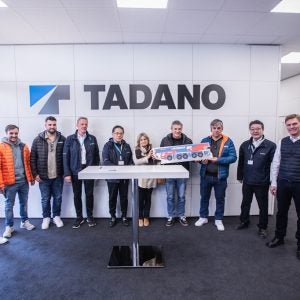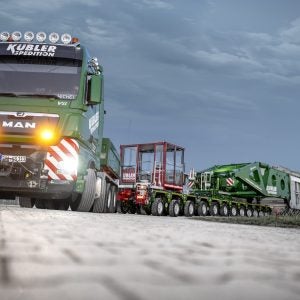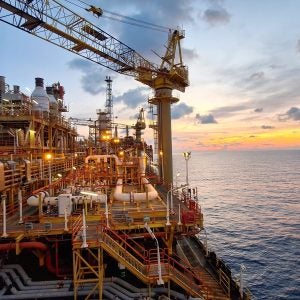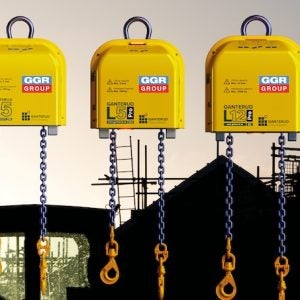KCI Konecranes, the Finnish manufacturer of overhead cranes, saw its sales grow 23% in the first six months of 2001.
Total sales were Euro 358.4m. Operating income rose from Euro 4.1m for the first half of 2000 to Euro 20.7m for the first half of 2001.
Group net income for the period was Euro 13.4m or 3.7 % on sales compared to Euro 1.4m (0.5 % on sales) in the previous year. Return on total capital employed was 19% and return on equity 18%. The corresponding figures for 2000 were 6 % and 2%.
Strongest growth was in the Special Cranes segment, where sales were up 60% to Euro 107m. Sales in Maintenance Services grew 17% to Euro 170m, and Standard Lifting Equipment rose 5% to Euro 117m.
There was a 7% increase in orders received during the period to Euro 370m. Maintenance service orders rose 13% to Euro 168m. Orders for special cranes fell 6% to Euro 110m. Orders for Standard Lifting Equipment fell 6% to Euro 125m.
Maintenance services The company reported that it continues to focus its maintenance contract base towards operators with more demanding crane applications, and operators who emphasise reliability and availability of their equipment and require professional expertise. As a consequence, the number of cranes in the contract base grew only by 1% from the year-end 2000 level and by 3.5% from the end of June 2000. However, the average maintenance contract value per equipment unit grew by about 4% during the period compared to the value at year-end 2000.
Standard Lifting Equipment Orders received for Standard Lifting Equipment contracted by 6.1 % during the first half-year compared to the first half of 2000. Excluding the effects of discontinued products at R&M in USA, the order value was at the same level as it was one year ago, the company said. Sales grew by 4.9 %. Operating income was Euro 14.2m (12% on sales) which marks an 84% improvement over the corresponding period last year when the cost of developing the new Q platform wire rope hoist series was taken. Konecranes said that the new hoist had “progressed according to plan”.
Special Cranes.
Orders for Special Cranes during the period grew by Euro 6.4m or 6.2% from the level one year ago. After historically strong bookings during the first quarter orders were lower (Euro 24.6m) during the second quarter. Orders for Special Cranes typically show large variations between single quarters. the company said. Sales growth during the period was 60.1 % and operating income reached Euro 7.3m compared to Euro 1.3m during the first half of 2000. Due to strong sales activity and lower order intake, the order book for Special Cranes decreased slightly during the second quarter; but stayed on a higher level compared to year-end 2000.
Sales by market area Group sales grew in all market areas, the company reported. The fastest growth was recorded in Asia Pacific (+35% for 6 months ending June 2001 compared to the first half of 2000) and the lowest growth (+18%) was recorded in Western Europe (EU without the Nordic countries).
Stig Gustavson, president and CEO, said: “The past six months have marked a significant change in the economic environment. Almost all western developed economies (i.e. those that have relevance for the group’s offering of high-tech solutions) have seen quick changes in growth prospectives. For industrial investments, the new market sentiment has meant less spending or, at best, that customers hesitate to place firm orders.
“Against this backdrop, the group’s first half-year performance is very satisfactory. The Maintenance Services business area represents a continuing stability. Also, Maintenance Services represents a certain counter-cyclical element: in times of low investment spending, modernisation of old equipment can provide equipment owners with substantial extensions of equipment life. For both Standard and Special Cranes, Maintenance provides a superior access to customers.
“In periods of low investment activities, product performance receives increased attention among customers. Here, the group’s modern, high performing product ranges are a real asset. The proof: we see our market shares increasing.” .
Gustavson added: “One further element of importance: An economic downturn usually opens up interesting acquisition opportunities. In all, the group is well positioned also for a new economic environment. Most members of the current management team experienced and successfully handled the recession in the early 1990s. The team faces the present situation with confidence and the group’s long range goals remain unchanged.”






